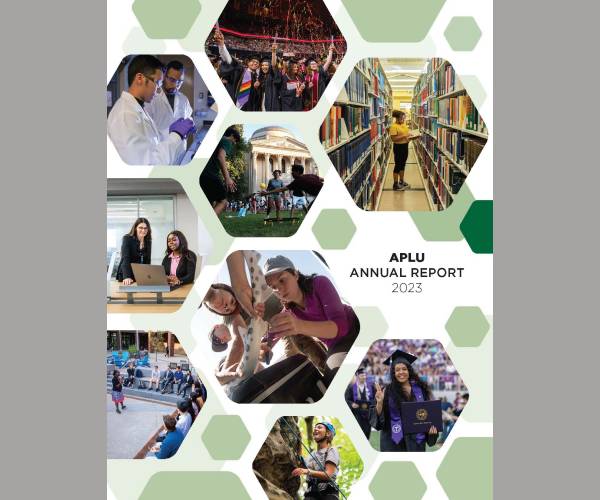Affordability
To better understand, address, and improve the challenges related to college affordability and student debt, nine institutions participated in a collaboration between APLU’s Powered by Publics initiative and TIAA Institute to investigated best practices and possible long-term reformation of current financial aid approaches.
The COVID-19 pandemic unearthed systemic and institutional impediments that exacerbate the equity disparities that campuses are trying to address. With participating institutions, APLU has undertaken intensive research into college affordability, innovative approaches to affordability, as well emergency student aid distributions made availability through the CARES Act. This work is outlined in three research briefs.
The institutions participating in this effort are: Cleveland State University; Rutgers University-Newark; University of Cincinnati; University of Louisville; University of North Texas; University of Texas at San Antonio; Virginia Commonwealth University; Wayne State University; and West Virginia University.
As fellows, these institutions examined how stimulus funds from the CARES Act were distributed to Title IV-eligible students, and how different processes or methods may ultimately result in disparate impact on various populations, including student veterans, undocumented students, low- and middle-income students, and students of color. The institutions also explored how the pandemic has exacerbated existing affordability barriers and student debt for minoritized student populations, including how universities can collect disaggregated data to examine the racialized impact of financial aid policies and practices. By explicitly taking an equity lens for this research, fellows have conducted deeper discussions and improve the evidence base for financial aid innovations that impact affordability and student debt, particularly for students most affected by COVID-19.




Stay Connected
X (formerly Twitter)
Facebook
YouTube
LinkedIn
RSS